Tennessee Ukulele Lady Kelle Jolly continues the legacy of Affrilachian music
Kelle Jolly is a singer, musician, actor, TV and radio personality, and community organizer. She is also the Tennessee Ukulele Lady.
“‘Tennessee Ukulele Lady’ is a song I made up for Ukesophere just to have a little theme song,” she says. She laughs as she recalls how she now gets requests for the song when she performs at places like community centers and senior citizen homes in her adopted home of Knoxville, Tennessee.
Jolly has spent the last 11 years living in Knoxville, a place she says she never would have imagined she would end up. She was born and raised in South Carolina and later moved to Chattanooga. She moved to Knoxville with her husband, saxophonist Will Boyd, where they both work full-time as musicians performing traditional American music – mostly jazz, but also blues, gospel, and soul.
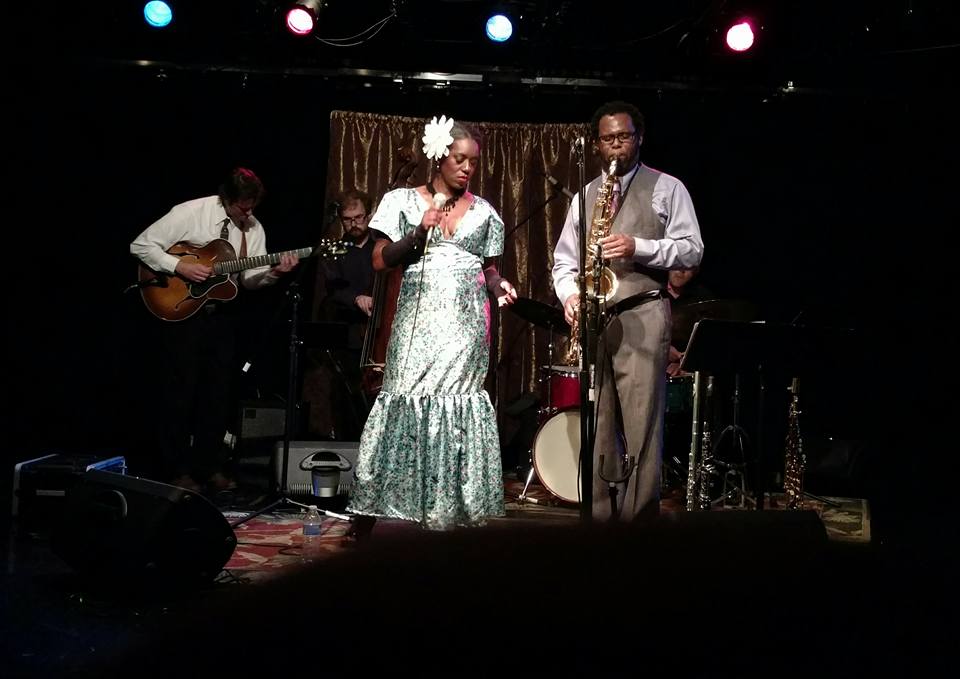
Jolly also acts in musical theatre as a member of the Carpetbag Theatre, one of the oldest Black theatre companies in the United States. The company performs works like Between a Ballad and a Blues, about the life of African American string musician Howard “Louie Bluie” Armstrong from LaFollette, Tennessee, and his contribution to the unique African American culture of Appalachia – a distinct Appalachian subculture referred to as “Affrilachian.”
“I related to his story so much,” Jolly says. “It made me realize, wow, I’m part of this tradition.”
As primarily a vocalist, Jolly also “off and on” played guitar and bass, until she decided she really needed to commit to being a string musician.
“I knew that if I’m going to live this Affrilachian life, I need to be able to sit in jam sessions and play something,” she says.
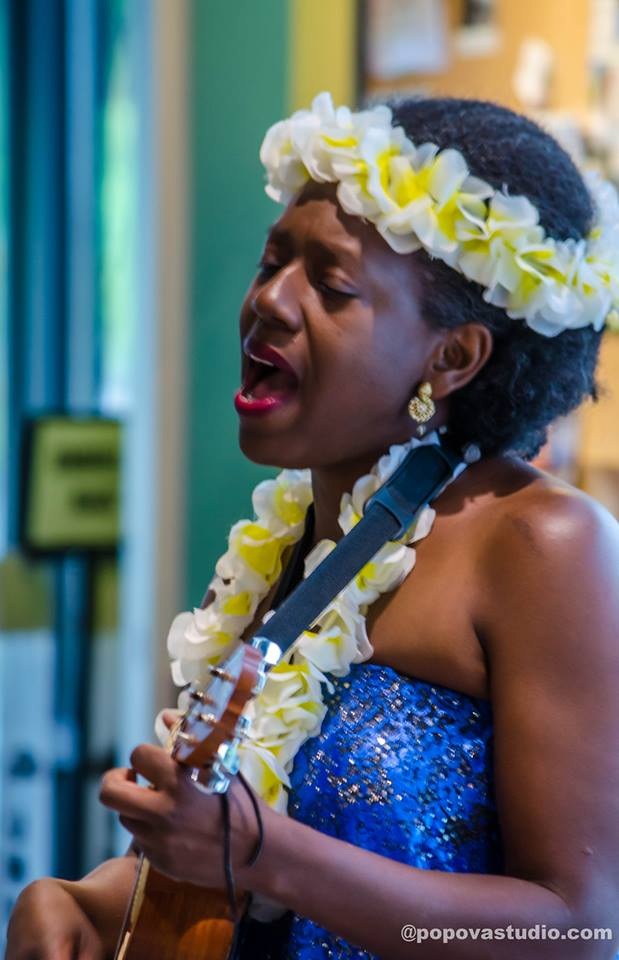
She opted for the ukulele as her string instrument of choice, which might not seem like the most obvious instrument for a jazz musician to play, but Jolly explains that it is actually quite practical and versatile.
“I was sold on the ukulele because you can carry it on a plane as a carry-on,” she laughs, as she and Boyd frequently travel to perform (as far away as Japan) and the ukulele is much easier to carry around than a guitar. “You can play every type of music on a ukulele. You can play jazz chords, you can play triads, you can play freedom songs and gospel songs. At different points in American history, lots of people played the ukulele. A lot of swing music was played on ukulele.”
After Jolly began playing and performing on ukulele, her friends got interested in it too, so she decided to start a ukulele club called Ukesphere of Knoxville – the club for which she wrote the song “Tennessee Ukulele Lady.” Now she teaches ukulele throughout the region in workshops and teaching camps, and also hosts ukulele jam sessions.
“Ukulele has given me this whole other world,” she says. “People are much more aware of the ukulele now. I think lots of people when people see me play it think, ‘If she can do it, I can do it.’ I don’t know if that’s a compliment or not but it brings awareness!”
But for her the ukulele is more than just a fun, lightweight instrument to play. It is also a matter of carrying on Affrilachian cultural traditions.
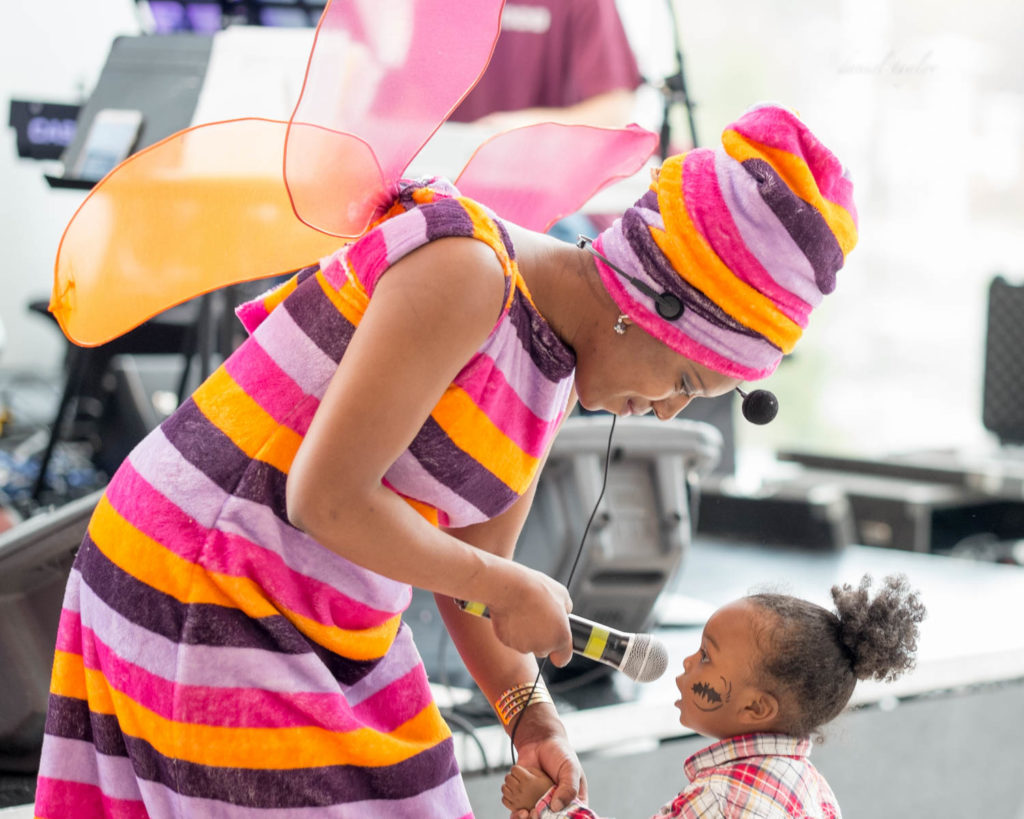
“The reason why I think it’s important to carry on string musician traditions is because I’ve been in Tennessee since 2002 and I have see how African Americans who are from here don’t identify themselves as Appalachian. When you think ‘Appalachian’ you think of Dolly Parton. I think it’s important, especially for young people, to see me playing string music in public. They can see that and say, ‘That’s what my grandparents did too, and my great grandparents, and my great great grandparents. I’m part of this legacy. I’m part of this tradition. I’m Appalachian. I’m Affrilachian.’ They need to see that so they know they are part of a culture.”
Jolly says she has been Inspired by the mentors in her life to keep these traditions alive and inspire young people.
She recalls playing at the Knoxville Stomp in 2016, a four-day festival celebrating the city’s varied musical heritage, highlighting recently rediscovered and remastered recordings made in 1929 and 1930 known as “the Knoxville Sessions.” Jolly sang music by artists like Leola Manning and found herself inspired.
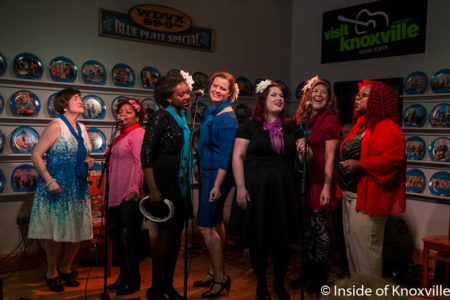
“Now I’ve sang the music of these women. Now I’m part of this East Tennessee music tradition. That really shaped my music and my story, knowing I’m carrying on this tradition and this legacy.”
From that point Jolly wanted to do more to help herself and help other women. So she started the Women in Jazz Jam Festival in 2016, connecting women in jazz from all over the region, who typically spend most of their time playing in bands as the only woman, often never having played with other women at all. The annual festival is held in March to coincide with Women’s History Month. The next festival is scheduled for March 16-18, 2018.
Jolly also teaches the blues in workshops for children and adults. In one workshop she offers called “Life Gives Me the Blues,” she demonstrates the 12-bar blues and then has the whole group write a blues song together based on what is going on in their lives and the truth of what is happening in that moment.
“Blues isn’t necessarily sad; blues is the truth,” she says. “In these workshops we sing our truth, our song. That’s powerful. [To sing in a group] you have to be listening to others to join in together and support each other in singing their truth. This is about listening to others and supporting them, so they can emulate that in other parts of their lives.”
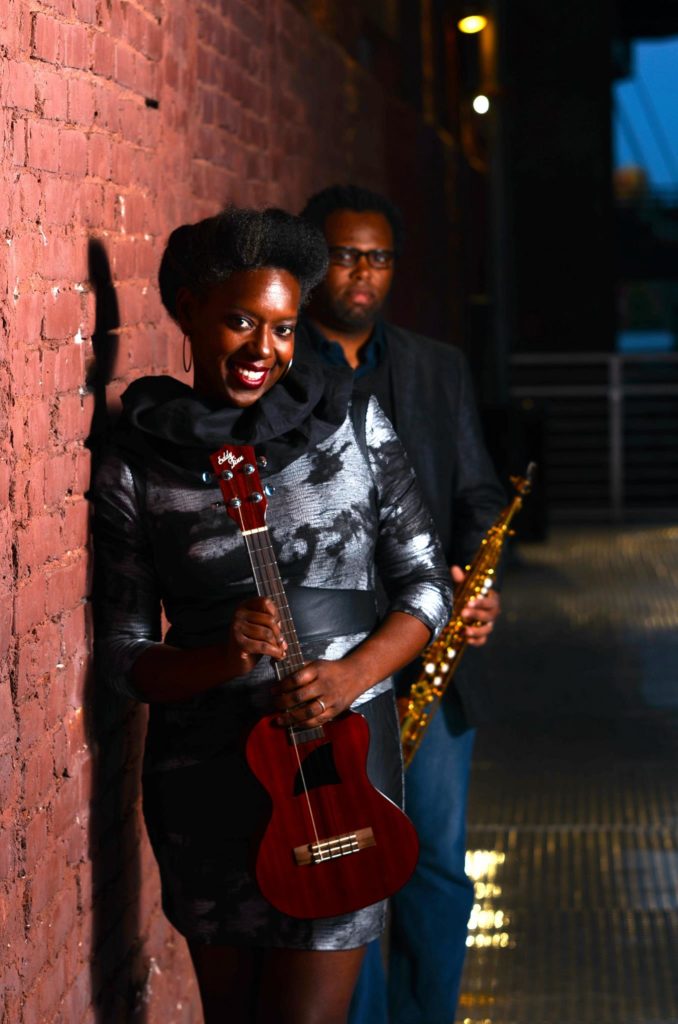
In addition to planning the next Women in Jazz Jam Festival, teaching workshops, and playing gigs, Jolly’s next big project is planning the “Affrilachian Okinawa Americana” tour for late 2017, which will feature Jolly and Boyd playing together with their friends from Japan, David Ralston and Merry Gushi.
The impetus for this idea came last year, when Ralston and Gushi came to Knoxville to visit and they all played a few shows together. On seeing the combination of a Caucasian man, Japanese women, and an African American man and woman all playing together onstage, one of Jolly’s students remarked, “I feel like I watched what the world should be like.”
Jolly replied, “Yes, that can happen. People can come together from different perspectives and they can work together.”

(1) How do you like to collaborate?
I just like to do it. I like to create new things with people without putting too many constraints or guidelines to it. I like for things to be organic.
(2) How do you a start a project?
I think about what the ending should be. What should it look like? That’s what I’m trying to do better – imagine what the ending should look like and work towards that.
(3) How do you talk about your value?
I feel like I always have to prove myself all the time. I feel like I’m always trying to prove myself because people tend to underestimate what I bring to the table…until they see me and then they feel bad about it. Now I’ve decided when I do something, I need to get what I need from it from the beginning. I don’t do work to make connections for the future. I don’t do work for exposure. I don’t know what the future is – this could be the last thing I do, and I have needs right now! Whatever I can get from this experience, I need the most from it right now. I have learned to speak up for myself and ask for what I need.
When you live with a culture of struggle you’re always worried about people rejecting you, so you always bow down to make sure people don’t reject you. You have to ask for what you want. If people want to pay it, then they’ll pay it. If not then you haven’t lost anything.
I needed to learn how to put my needs first and that I don’t have to inconvenience myself to make other people comfortable. I’ve had to un-learn that. I don’t have to apologize for taking care of my needs first.
(4) How do you define success?
I think a performance or event was successful when it causes people to move, or when it ignites something in other people, when the energy is transferred. It could be emotional for somebody, or it could be physical.
In the first year of the festival, after the first day the only way I could get all the women to play together on stage was to get them all together in a giant band. Practices began in a circle and ended in a circle. We started to share things in the circle so everyone knows where you’re coming from, and in those circles I learned a lot about how the whole process of starting this festival, how it affected them. People talked about never playing in a group with other women before. Now the women hire each other more because they know what everyone is capable of.
We have to create a pipeline for work for each other, for opportunities, for connections. Just being around each other, through that interaction now I have sisters who want to invite me over and cook me meals. That’s success – when people are engaged and something has been ignited, or have the opportunity to sing on a microphone, or get the courage to stand up for themselves.
Those things are successful when people who have been engaged are motivated to do more and be more, when a seed has been planted. I like watching things grow – planting a seed, nurturing it, watching it grow, and then harvesting it. I love planting a seed and being able to reap the harvest, and that’s what I’ve learned from my mentors too – they planted the seed in us.
(5) How do you fund your work?
Paid gigs and lots of donations. I have to play shows to raise money for festivals and projects. The first year I did the festival I raised almost $10,000 in donations, and that was first time doing something like that. I don’t know how to do sponsorships.

[…] some artists begin at the end. “I think about what the ending should be,” musician Kelly Jolly says of her process of starting a new project. As a public art organizer, Brooke Foy says, “A […]
[…] Tennessee Ukulele Lady Kelle Jolly continues the legacy of Affrilachian music Jazz vocalist and musician Kelle Jolly wanted to honor the Affrilachian cultural traditions she finds herself a part of in Tennessee, so she picked up the ukulele and became the “Tennessee Ukulele Lady,” hosting workshops and carrying on East Tennessee music traditions while also bringing together women in jazz. […]